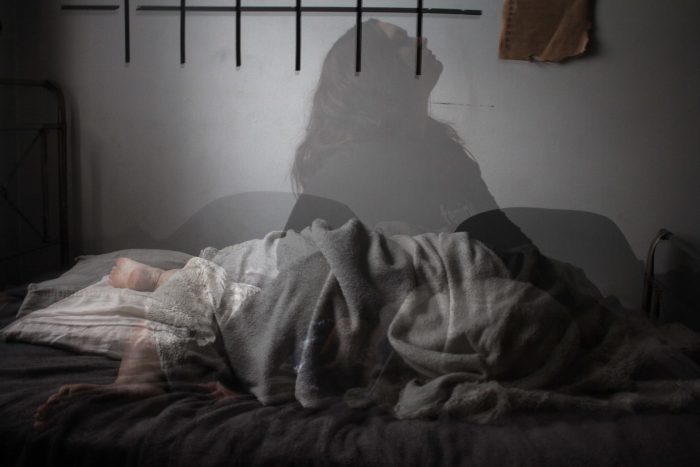Many years ago, I was in a group of women for relationships advice.
One leader in the group said, “I hate desperate people.”
She was sharing this thought regarding someone she had received a message from, who she was coaching on her failing relationship.
This woman was desperate to save her marriage.
Immediately taken back. I said, “What? How can a coach or counselor feel that way?”
The coach in me had to respond. “Who hasn’t been desperate in their life? How would you feel if you were feeling desperate and someone had that judgment about you?”
Desperation is reaching out for help. Desperation is the total loss of hope. It’s a desire to have what someone sees as an important need—met. It’s a desire for help, hope, love, and connection.
Rarely are people desperate when they have hope, love, and support.
It is in a feeling of no hope that desperation begins.
Actually, the coach’s feelings about people who are desperate aren’t so far off from many people. It’s sad, but true. As a society, we mostly turn our heads to desperation.
It turns people off to see desperate people.
They want to be with those who aren’t desperate and those who, even if they are being fake as hell, exude the opposite of desperation—who are confident, arrogant, or even numb.
We can’t tell the difference between arrogance and confidence. Numb is just nonreactive, which is so much easier than any feelings we aren’t comfortable with.
Someone who is showing confidence could totally scam us.
We’d just about rather be anywhere but around someone who is desperate.
Desperation can feel overwhelming or invoke feelings we’d rather just ignore. It can feel as if we might lose ourselves.
One lady put it simply, “From a personal standpoint, I would avoid these people, because I expect people to be continually getting such needs met.”
Can people really continually get their needs met always?
The fact that we expect them to is possibly why people in desperate situations do things they might not otherwise do when they cannot always get their needs met.
Sometimes things are out of our control. They know desperation is a shameful place to be.
That’s why most of us hide desperation.
I feel empathy for those who are desperate. I don’t feel the need to rescue, but I can immediately put myself in that position. I’ve been there.
Many years ago, the most desperate I’ve been was when my daughter, who was not quite two years old and who was always trying to hide in clothing racks and shoe shelves, darted off so fast I couldn’t find her.
In the shoe section at Sears, I hunted for her as quickly as I could and then realized there was way too much area to cover myself. Desperate for help, I asked people if they had seen her. No one replied.
I yelled out her name—no one noticed. People just continued looking at me like a crazy woman and went about their business.
I finally found her, but it wasn’t easy. She thought it was fun. I thought I’d die of a heart attack. I seriously was having chest pains.
I’ve never forgotten that post in the group.
Years later, it is forever in my mind, reminding me that everyone has had desperate times in their lives. It’s up to us to make a choice to stand in compassion and empathy—to listen and offer what we can, or to continue to show up with arrogance and seemingly evolved past desperation.
As if it won’t happen to us.
As if “desperate” is something someone shouldn’t be.
As if desperation is something to feel ashamed of.
Is our lack of concern and compassion what enables those who need help to be void of help? Is it what causes desperation to continue?
What I know is that if coaching is my choice of careers—avoiding desperate people isn’t how I want to show up in the world.
Desperation can happen to any of us at any time. At any point in our lives, something can happen and we might once again experience desperation.
As a relationship coach, I get messages from those desperate in relationships.
Our hearts being vulnerable to hurt and abandonment, being vulnerable to betrayal or worse, and losing a loved one leaves us all in a position to become desperate.
I understand this desperation.
We are connected to someone at a deep level and that sometimes makes us feel desperation.
Yes, desperation is a state of mind, just like joy and elation are. That doesn’t mean we created it or can snap out of it. It’s an opportunity to give, to share, and to connect. Possibly change someone’s life.
In my case, to help me find my child.
Be aware of how you respond to your loved one who is desperate to connect with you, desperate to settle an unsettled argument, desperate to hold on to you because they love you. Desperate for touch or affection.
Turning our backs on that person and showing them that their desire to maintain a connection is pushing you away isn’t what creates trust. It shows the person that when they are down and out, you will not give them the time of day.
If you are turned off by desperation, it says more about who you are than it does about the desperate person.
Ask yourself who you want to be and what you would want from someone if it happened to you.
If desperation seems to happen frequently, then possibly seek the help of a professional to look at the insecurity issues that might continually trigger desperation.
Keep in mind that none of us are void of having our lives turned upside down and to become desperate.
Now that COVID-19 has shown up, desperation is something we see every day in huge proportions.
Do we take this opportunity to find compassion for those who have lost their place of residence, their job, have no food, or just lost a loved one?
This person has possibly been home alone for months and is desperate for human connection.
Do we continue to shy away from desperation and focus on something else that seems a lot easier to focus on? Who do we want to be in the face of desperation? How does our repulse of desperation change the world?
For me, it doesn’t. It perpetuates it.
~


 Share on bsky
Share on bsky





Read 7 comments and reply